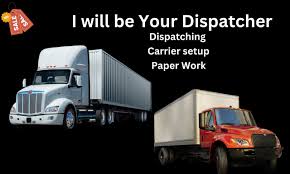By Aradhana Mantri
International trade offers businesses the opportunity to grow beyond borders, tap into new markets, and establish global partnerships. However, every shipment moving in and out of India must pass through the customs department, where strict rules govern the import and export of goods. The clearance procedures involve detailed documentation, accurate product classification, duty calculations, and regulatory compliance. One small mistake in paperwork or regulation can delay cargo for days, sometimes weeks, resulting in extra costs and operational disruptions.
This is why experienced customs clearance agents act as a crucial support system for businesses. They help ensure that every step of the customs process is followed correctly, allowing goods to reach their destination smoothly. This article explores how customs clearance agents manage documentation, compliance, risk control, and digital processing to keep supply chains running efficiently.
The Importance of Proper Documentation in Customs Clearance
Customs documentation is the core requirement for clearance. It serves as a formal declaration of goods, including details like their value, quantity, classification, and intended use. Missing or incorrect paperwork can trigger delays, penalties, or even cargo seizure.
Some of the main documents that customs clearance agents prepare and manage include:
• Bill of Entry (for imports)
• Shipping Bill (for exports)
• Commercial Invoice from the supplier
• Detailed Packing List
• Airway Bill or Bill of Lading as proof of shipment
• Importer Exporter Code (IEC)
• HS Code and product classification details
• Certificate of Origin to verify manufacturing location
• Insurance documents for cargo safety
• Duty payment receipts
• Authorization letters for CHA representation
For sensitive products, additional documentation may be required, such as FSSAI approval for food items, BIS certification for electronics, or AQCS clearance for animal and plant goods. Customs agents ensure these documents are prepared in advance and filed correctly to avoid inspection delays.
Ensuring HS Code Accuracy and Duty Compliance
The Harmonized System (HS) Code is a globally standardized product classification method. Each product is assigned a specific code that determines:
• Customs duty rate
• GST applicability
• Import restrictions (if any)
• Requirement of licenses or certifications
• Eligibility for exemptions or duty drawbacks
Even a single change in HS code digits can alter duty liability significantly. Skilled customs clearance agents research the correct classification, cross-check tariff rulings, and ensure legal compliance to maintain accuracy. This avoids disputes, overpayment, and fines due to misclassification or under-declaration.
Role in GST, Taxes, and Duty Payments
Customs duty in India involves multiple charges like:
• Basic Customs Duty (BCD)
• IGST on imports
• Social Welfare Surcharge
• Anti-dumping duty for restricted goods
• Safeguard duty in special cases
Agents calculate these charges properly using official tariff notifications. They arrange accurate duty payment and filing through digital portals to ensure timely processing. This prevents the cargo from being held at ports due to unpaid or incorrectly paid taxes.
Compliance with Trade Regulations and Laws
India follows strict customs laws governed by the Central Board of Indirect Taxes and Customs (CBIC). Agents must stay updated with:
• DGFT notifications
• Port and terminal guidelines
• Customs valuation standards
• Security regulations
• Import/export policy revisions
Professional customs clearance agents review business trade patterns to ensure there is no violation of import policies, such as:
• Ban on specific goods
• Quota or license restrictions
• Environmental and health safety standards
• Intellectual property compliance
• Packaging and labeling rules
Their proactive compliance support helps importers avoid unnecessary queries and shipment detention.
Risk Assessment and Prevention of Delays
Risk management is one of the most important roles of customs agents. Shipment errors can lead to:
• Physical inspection
• Demurrage charges
• Port storage expenses
• Re-assessment or re-filing of documents
• Legal notices and penalties
Experienced agents check the cargo information thoroughly before arrival:
• Verifying invoice value and product description
• Ensuring regulatory documents are available
• Predicting possible customs objections
• Providing advance guidance for uninterrupted clearance
By identifying issues early, they reduce the chances of customs red flags and delays.
Handling Specialized or High-Risk Cargo
Some goods require additional compliance due to their nature. These include:
• Food, beverages, and edibles requiring FSSAI or phytosanitary certification
• Electronics requiring BIS approvals
• Hazardous chemicals requiring MSDS and DG regulation compliance
• Pharmaceuticals requiring drug authority approval
• Defense materials with security protocols
Customs agents coordinate with government departments for approvals, ensuring that such shipments remain compliant throughout the clearance process.
Digital Processing Through ICEGATE and EDI Systems
The Indian customs system now operates predominantly through online filing using:
• ICEGATE (Indian Customs EDI Gateway)
• Single Window Interface for Trade Facilitation (SWIFT)
• Electronic Duty Payment systems
Customs clearance agents handle tasks such as:
• Online Bill of Entry filing
• Shipping Bill submissions
• Electronic duty payments
• Document uploads in digital formats
• Live tracking of customs clearance status
Digital systems improve processing speed, ensure transparency, and reduce the reliance on manual paperwork, helping businesses receive updates in real time.
Managing Customs Queries, Inspections, and Disputes
Customs officials may raise queries about:
• Valuation differences
• Incomplete documentation
• Suspicious product classification
• Missing certifications
Agents respond to these queries promptly by submitting required evidence or clarification. If goods are sent for examination or inspection, agents coordinate logistics to reduce delays. They also represent clients in reassessment, appeals, or classification disputes when needed.
Coordination with Other Supply Chain Partners
Customs clearance does not end at documentation. Agents also coordinate with:
• Shipping lines
• Airlines and cargo handlers
• Transporters
• Freight forwarders
• Warehouse and CFS operators
This coordination ensures that once customs clearance is completed, the goods can proceed smoothly to the importer’s facility or export freight partner.
Professional Advisory and Trade Support
Experienced agents provide advisory services like:
• Duty optimization strategies
• Cost-saving suggestions
• Landed cost calculations
• Understanding compliance before import decisions
Their guidance helps companies avoid costly mistakes and choose the most efficient trade practices.
Conclusion
Efficient documentation and regulatory compliance are fundamental to successful global trade. Customs clearance agents have an in-depth understanding of customs laws, taxes, documentation formats, and advanced filing systems. They safeguard businesses from delays, penalties, and compliance failures by handling paperwork and legal procedures accurately and systematically. With expert support from professional service providers like LAC Relocations, importers and exporters can focus on business growth while ensuring seamless and compliant customs clearance.


